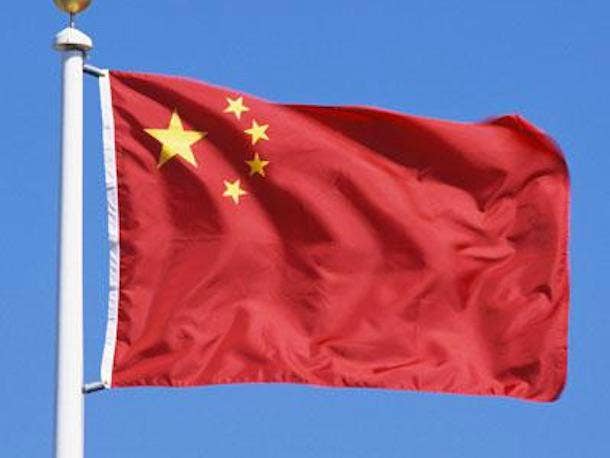In Broadcom-VMware Deal, All Eyes On APEC 2023 And Chinese President’s San Francisco Stop
Multiple analysts have told CRN that the Chinese president’s stop will be closely watched amid US chip trade barriers. ‘Unless concessions are made on this restriction, the chances of a successful close appear to be very slim,’ says Forrester’s Tracy Woo.

The future of Broadcom and VMware’s $61 billion deal has become entangled with realpolitik of international trade relations as Beijing stands as the lone, regulatory holdout, meaning the acquisition’s chances of closing by the outside date are growing smaller, analysts told CRN.
“It is very likely the hold-up in China coincides with the new limitations the U.S. government put on China’s access to its advanced GPUs that are used to power AI applications,” Tracy Woo, principal analyst at market research firm Forrester, told CRN. “And unless concessions are made on this restriction, the chances of a successful close appear to be very slim.”
[RELATED: Broadcom Misses VMware Deal Closing Date, Pledges It Will Close ‘Soon’]
As the pendulum swings closer to the deal’s Nov. 26 outside date when either Broadcom or VMware could walk away, all eyes with a stake in the acquisition are watching San Francisco as Chinese president Xi Jinping meets Wednesday with business leaders and politicians, including U.S. President Joseph Biden at APEC 2023.
Woo said there could be some progress made during the visit, but probably not as much as China would like.
“This meeting is a potential for small concessions though it doesn’t look like it will move the needle much,” she said.
A financial analyst who asked not to be named said money managers with stakes in VMware and Broadcom will be paying attention to Xi’s meetings with business leaders, and listening for signs that China is inclined to greenlight the merger. The analyst said any hope that politics wouldn’t be a factor in the deal evaporated when Beijing withheld its approval past Oct. 30. That was the date Broadcom CEO Hock Tan had picked 18 months ago as the close-by date.
China’s competition authority is the final regulatory hurdle that Broadcom must clear before it can complete the acquisition of the virtualization all-star.
It has 12 days left.
Here are five key things to keep in mind as the acquisition winds to a finale.

What Happens Nov. 26
The so called “outside date” is the farthest bookend of a deal. Once the calendar turns Nov. 26, if the merger isn’t done, VMware or Broadcom may walk away from any future together. Prior to that there are financial and legal penalties for doing so.
VMware and Broadcom have extended the outside date before -- in February, May, and August, each time by prior mutual agreement. Nov. 26 has no such arrangement in place.
“VMware is and will continue to operate as a standalone company until the deal closes, which we expect to happen soon,” VMware said in response to a question from CRN about what would happen if the “outside date” is reached and a deal isn’t closed.
Broadcom did not reply to the question at the time the story was published.
VMare had planned on being an independent company prior to Broadcom’s May 2022 offer. During the first 40 days of the acquisition’s announcement a go-shop provision gave other suitors a chance to best Broadcom’s offer. No such deal materialized.
Broadcom CEO Hock Tan appeared on stage last week in Barcelona for VMware Explore Europe. Without addressing the regulatory barriers, he talked about his promises to VMware once the transaction is done.
“Going forward I’d like to speak to three commitments we will make to you, our customers. First, we will accelerate the pace of innovation through stepped up R&D efforts. Next we intend to invest much more in the VMware ecosystem, with our partners, the value added resellers, the distributors, the OEMs, the managed service providers and of course, the global systems integrators.”
Tan also vowed to tackle the complexity of VMware products, making them easier to consume.

Customers Are Watching
According to Forrester and partners, the disorder around the merger has reached a point that customers are taking notice and sizing alternatives.
“As for fear and distraction, absolutely yes,” Woo told CRN. “We have heard from a lot of customers that are looking at alternatives or who are not considering VMware at all because of this deal.”
VMware partners also said customers are now paying closer attention to what is to come.
“Our larger customers that heavily adopt enterprise VMware products are certainly paying much more attention to it because the outcome and direction can sway a piece of their core IT business,” said one VMware partner who asked not to be named. “Smaller customers without as many workloads don’t pay as much attention since they rely much more on their outsourced IT arms to help them navigate this territory. It will be interesting to see how this plays out, but it’s becoming a distraction.”

Tan Refused To Budge As US Restrictions On China Imposed
Tan refused to move the Oct. 30 close-by date, even as evidence mounted that China was likely to hold back its approval.
“I was surprised when the two companies announced late October that they were hopeful of closing before November,” Woo said. “I had expected a much longer delay of weeks to months.”
She said after the deal cleared regulatory hurdles with South Korea it is very likely the hold-up in China coincided with the U.S. government’s restriction on China’s access to advanced GPU-chips used to power AI applications.
“And unless concessions are made on this restriction, the chances of a successful close appear to be very slim,” Woo said.
One financial analyst who asked not to be named said Tan had the option of not seeking Chinese approval for the deal, but did so to appear cooperative with the government given his other businesses in China. The request for Beijing’s now appears to have pinned the merger’s fate to international trade relations.

Financing Not Likely To Be A Problem
San Jose, Calif.-based Broadcom announced its intention to buy VMware in May 2022 in a 50-50 cash, stock split that would see VMware shareholders receive $142.50 premium for their shares or an equivalent value of Broadcom stock.
At the time, CEO Hock Tan said the $61 billion price would be covered partially with $32 billion in lending from a consortium of banks.
One analyst said even if the terms of the lending expire, a Broadcom, VMware deal would have no trouble finding leders to back it.

‘Long Journey’ Continues
Last week, VMware CEO Raghu Raghuram stood on the main stage in Barcelona at the company’s VMware Explore Europe and told the crowd that Tan was even more excited than he was when the deal was first announced.
“I can tell you without a doubt that he is even more excited about the potential of VMware going forward than he was last May,” Raghuram said.
Tan and Raghuram shook hands.
“It has been a long journey,” Tan told the crowd. “Having said that, it’s well worth it.”
Conversations with VMWare customers and partners have highlighted the combination’s value.
“We will not just continue, but accelerate the pace of innovation,” he said.
Broadcom has promised to invest $2 billion into VMware immediately following the deal closing.